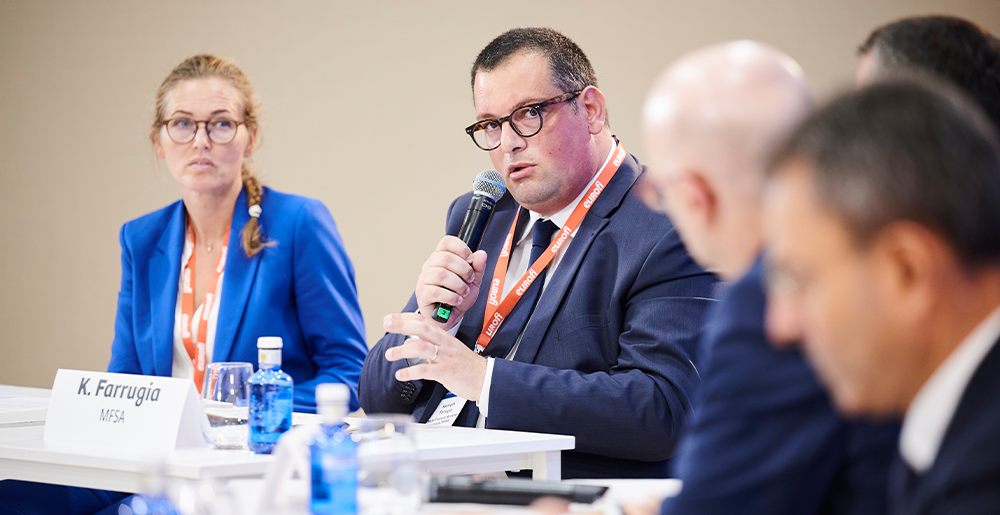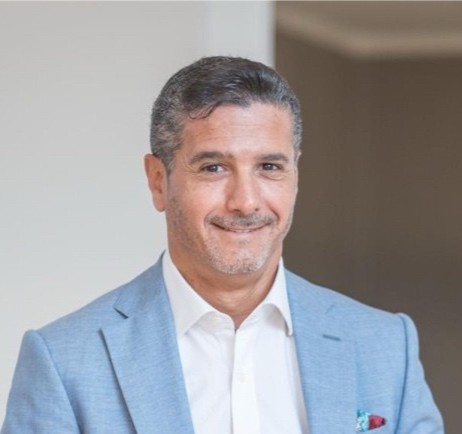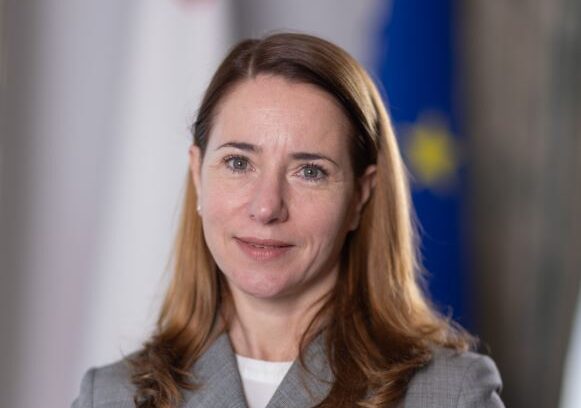As the legislative process surrounding the EU’s latest Anti -Money Laundering Package is finally seeing the proverbial light at the end of the tunnel, Malta Financial Services Authority (MFSA) CEO Kenneth Farrugia sheds light on the challenges and opportunities surrounding one of its key developments: the creation of a supranational AML/CFT authority (AMLA).
In an article penned by Mr Farrugia, that first appeared in ‘Views – The Eurofi Magazine’, he explained that this latest AML package, comprising three regulations and a directive, is “nearing its final stages”.
The creation of AMLA is intended to improve supervision across all sectors, Mr Farrugia writes, “by coordinating and directly supervising high-risk entities, particularly credit and financial institutions operating in multiple Member States.”
He adds that a driving factor for the creation of an AML supranational authority has been the effectiveness of supervisory practices across Europe, “leading to money laundering scandals involving European credit institutions”.
And, while the suggestion of added AML supervision on cross border financial sector entities, already navigating a long list of AML rules and regulations by their local authorities, will likely induce some extra heartburn, could a more streamlined approach across the EU actually serve the private sector?
From a European perspective, Mr Farrugia notes, “one could say that the creation of a single rulebook and a single supra-national authority with direct supervisory powers was only a question of time.”
“Money knows no borders and neither does crime, and in an area created to facilitate and incentivise cross-border activity it was necessary to set overarching rules that do not allow for national influences.
“The project has suffered some delays, albeit this was to be expected due to its highly sensitive nature one and everyone wanting to contribute to develop the best possible solution.”
On the AML package as a whole, he observes that it offers promising solutions, and that AMLA’s role has undergone a “metamorphosis” with each successive review of the EU Commission’s proposal.
Mr Farrugia notes that the number of selected entities possibly subject to direct supervision has been increased by both Council and Parliament, and so has AMLA’s mandate when it comes to restrictive measures. “There have been repeated warnings that this will require AMLA to have an ever more substantial budget to, amongst others, recruit additional staff and bolster its technological capabilities.”
Among the major stumbling blocks for the effective launch and implementation of an EU-wide AML authority is finding the necessary human resources to effectively and efficiently execute its mandate. A concept private sector executives understand painfully well.
“Technology will only go so far– ultimately you will need qualified, experienced and creative people to take decisions, and those are in short supply.
“Recruiting and retaining staff in this area has always been challenging, with authorities having to compete with one another for a limited pool of talent. AMLA’s responsibilities will require additional skilled professionals which may potentially strain the human resources capabilities of national authorities as they lose their skilled regulators to the supranational body.
“AMLA must also tackle cross-cultural and language barriers to foster effective communication and collaboration among its staff and with the various national supervisory authorities.”
The MFSA CEO adds that technology will feature high on the AMLA agenda, whether to facilitate compliance by entities, or as a medium that creates new vulnerabilities within the AML/CFT system.
“To ensure transparency and prevent illicit activities, advanced technological solutions must be deployed to verify beneficial ownership information and safeguard against the misuse of corporate structures and robust monitoring.
“Tracing solutions will also be necessary in the realm of cryptocurrency, demanding innovative technological approaches. AI and Machine Learning Compliance represent a significant opportunity for enhancing AML/CFT efforts while information sharing and collaboration platforms, such as the EU AML database EuReCA, play a pivotal role in fostering greater cooperation among financial institutions and supervisory authorities.”
The other main building block of the AML Package, Mr Farrugia attests, is the AML Rulebook Regulation which sets out the AML/ CFT obligations for entities. Here, he notes that the EU is moving away from a directive to a regulation as the instrument of choice, thereby limiting arbitrage between Member States.
Malta team is RS2’s ‘technological engine’ says CEO amid Visa USA partnership
Radi El Haj spoke to MaltaCEO.mt about RS2’s recent collaboration with Visa USA Inc.
7 ways self-awareness can instantly improve your presentation skills
The path to presentation excellence begins with self-awareness.
Alison Micallef appointed CEO at Malta Development Bank
She steps into the new role effective immediately.
Impact beyond profit: CSR in Malta is a must in 2025
Nowadays, corporate social responsibility can no longer take a backseat in your business's vision.









